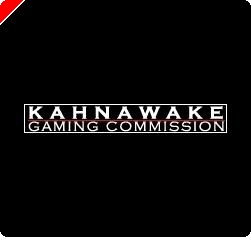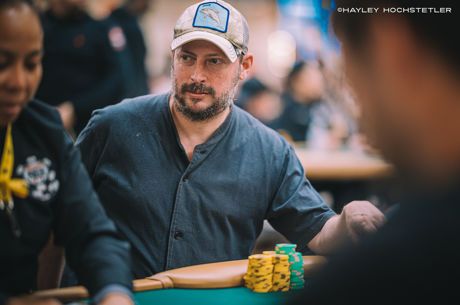KGC, PPA Issue Statements Following '60 Minutes' and Washington Post Exposés

Following a widely anticipated segment from "60 Minutes" and two articles in the Washington Post covering the Absolute Poker and UltimateBet online poker cheating scandals, both the Kahnawake Gaming Commission (KGC) and the Poker Players Alliance (PPA) have issued public statements regarding the mainstream coverage.
The Kahnawake statement focuses primarily on the 13-minute segment on Sunday evening on "60 Minutes," asserting that several key elements as aired in the segment were either incorrect or, by omission of important facts, allowed an erroneous conclusion to be reached by viewers. The complete body of the KGC's Monday release:
The Kahnawá:ke Gaming Commission ("KGC") and its agents, having viewed the CBS News item entitled "The Cheaters", extends the following clarification and information which, although provided to the show's producers, had been left out of the storyline.
1. The Ultimate Bet ("UB") cheating was initiated while UB was owned and operated by Excapsa (a public company whose Board of Directors included several high-profile Canadians). Pursant to a settlement agreement finalized in November, 2008, Excapsa agreed to pay Tokwiro ENRG US $15,000,000.
[Author's Note: Among the 224 Excapsa shareholders, many of whom were identified during the firm's liquidation proceedings, were David Peterson and Norman Inkster. Peterson is the former Liberal Party Premier of Canada's Ontario province who at one time served as Excapsa's non-executive chairman, and Inkster was a former chairman of the Royal Canadian Mounted Police. Both held public roles with Excapsa and were identified with the company prior to its sale to Tokwiro ENRG in 2006.]2. All players that were adversely affected by cheating (both AP and UB) were fully reimbursed. In the case of UB, these refunds amounted to over US $20,000,000. The reimbursement of UB players was affected within days after the Excapsa settlement. The KGC played a key role in facilitating and monitoring reimbursements.
3. The KGC and its agents have reviewed AP/UB operations and systems and have confirmed that all necessary steps have been implemented to prevent against cheating in future. Migration to the CEREUS software platform was approved and closely monitored by KGC.
4. Contrary to claims made in the 60 Minutes story, in addition to significant penalties levied under its Regulations (eg. fines totaling US $2,000,000), the KGC has initiated a criminal complaint against at least one cheater (Russ Hamilton) and is cooperating with law enforcement authorities. Other such complaints may follow.
The PPA's statement, by contrast, used the "60 Minutes" airing as an occasion to renew its call for regulation of online poker at the US federal level. The statement from PPA Chairman Alfonse D'Amato cited three separate bills (from Reps. Barney Frank and Robert Wexler and Sen. Robert Menendez) that the PPA supports and that are expected to be debated in the next Congress. The complete body of D'Amato's statement:
The recent cheating scandals underscore the need for U.S. licensing and regulation of online poker to help protect consumers. While even the most highly regulated industries are susceptible to fraud and abuse, regulation does provide assurances that when consumers are harmed they have recourse, and that the offenders will be sanctioned. The continued pursuit of poker prohibition, on the other hand, will only drive this industry underground. As the Washington Post
pointed out, prohibition represents a widening disconnect between 21st-century technology and 20th-century laws.
Regulation of Internet poker does not equal an expansion of gambling in this country. Like it or not, the phenomenon of internet poker cannot be wished away. The American market has spoken. There is strong demand for Internet poker and no reasonable government can or should stand in the way of adults competing in games of skill on the Internet. To the contrary, the government should step up and exercise regulatory oversight on this multi-billion dollar interstate commerce, and collect the revenue—especially during this country's economic crisis.
The federal government cannot continue to abdicate this basic responsibility to the millions of its citizens who choose to play poker on the Internet. The attempt to enforce an outright prohibition of online poker is deeply flawed and unworkable, and it invades upon the personal freedoms of law-abiding adults who wish to engage in a game of skill. And as 60 Minutes and the
Washington Poststories reported it also exposes American consumers to the rare, unscrupulous bad apple operator who will take advantage of the lack of a U.S. regulated marketplace.
Now more than ever the U.S. Congress needs to step up and enact real public policy as it relates to Internet gaming. We look forward to working with the new Administration and the new Congress to advance sensible regulatory solutions such as those introduced in the 110th Congress by Representatives Barney Frank (H.R. 2046) and Robert Wexler (H.R. 2610) and Senator Robert Menendez (S.3616).








